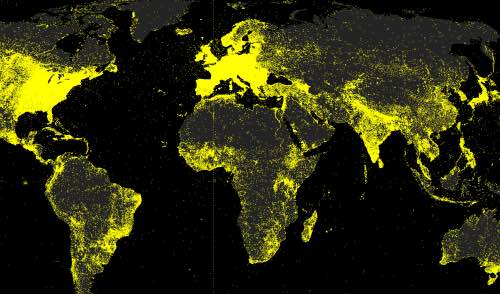In a landmark decision, the central govt has brought in a map India policy setting free the process of map-making and generation of geospatial data, granting private entities the freedom to mapping without restrictions. Till now, mapping was handled by the Central government’s Survey of India exclusively, but the decision announced today has removed all policy hurdles allowing Indian players to participate in the process and benefit from it.
Maps and accurate geospatial data are crucial for national infrastructure projects such as linkages of rivers, creation of industrial corridors and deployment of smart power systems. Apart from that, emerging vibrant technologies like Digital India, Smart Cities, eCommerce, autonomous drones, delivery, logistics and urban transport require a leap forward in mapping with greater depth, resolution and precision. Not only that, every economic endeavor, from agriculture, finance, construction, mining and local enterprise to India’s farmers, small businesses and corporations stand to gain tremendously from the application of innovative technologies based on modern geospatial data technologies and mapping services.
Prime Minister Narendra Modi said that the existing regime imposed significant restrictions on the mapping industry – from creation to dissemination of maps, requiring Indian companies to seek licenses, follow a cumbersome system of pre-approvals and permissions. Compliance with these regulatory restrictions has subjected startups in India to unnecessary red tape, hindering Indian innovation in map technologies for decades.
Also Read: No FASTag yet? Be ready to pay double toll charge now
To realise India’s vision of Atmanirbhar Bharat and the goal of a 5 trillion-dollar economy, the regulations that apply to geospatial data and maps henceforth stand radically liberalised. The Department of Science and Technology announced sweeping changes to India’s mapping policy, specifically for Indian companies.
What is readily available globally does not need to be restricted in India and therefore geospatial data that used to be restricted will now be freely available in India. Furthermore, our corporations and innovators are no longer subject to restrictions nor do they require prior approvals before they collect, generate, prepare, disseminate, store, publish, update digital Geospatial Data and Maps within the territory of India.
Our startups and mapping innovators will be trusted to self-certify, apply good judgement and be relied upon to demonstrate adherence to guidelines. In addition, measures to promote the development of Indian geospatial innovations that take advantage of the latest map-making technologies are proposed. With the next generation of mapping technology just about coming into its own around the world, this policy will enable Indian innovators to create substantial advances in mapping ultimately making our lives easier and empowering small businesses. With this move, India looks forward to emerging as a mapping power, creating next-generation indigenous maps of the country and taking these new technologies to the rest of the world.










Bhagavad Gita, Natyashastra added to UNESCO Memory of World Register
Inside Modi, Musk’s Tech Talk: What was discussed
Crypto star Tiffany Fong turns down Elon Musk’s baby proposal. Here’s why